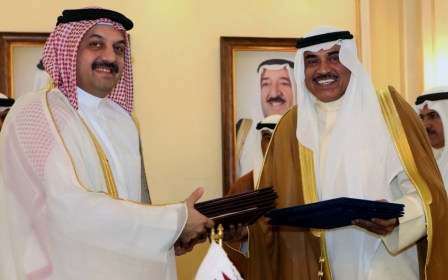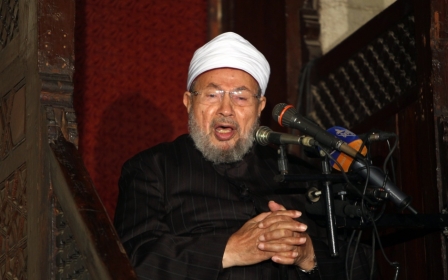Qatar proposes labour law reforms

The government of Qatar has proposed a number of changes to its labour laws at a press conference in Doha on Wednesday, following sustained reports of systemic abuses against the large migrant worker population.
“We want to provide more protection to the expat community and workers in this country, to provide them with more protection and safeguard their rights,” Salih Saeed al-Sahwi, manager of labour relations at the Ministry of Labour and Social Affairs (MLSA) said in a statement.
After the country's selection as host of the FIFA World Cup in 2022, Qatar has faced consistent accusations of exploiting the rights of migrant workers who are working on huge construction projects related to the event. Some rights groups say the exploitation has amounted to forced labour in some instances. Inflated recruitment fees, illegal wage deductions, poor living conditions and a lack of redress are just some of the complaints made by many of the 1.2 million migrant workers, who make up 94 percent of the country’s population.
On Wednesday, Qatari officials proposed changes to labour laws such as increasing the penalty for confiscating a worker’s travel documents from $2,750 to $13,750 and circulating a “model contract” that employers must follow when drafting employment agreements. Other potential changes include raising standards of accommodation and requiring salaries to be transferred electronically to avoid late payment.
A particular area of concern has been Qatar’s sponsorship law, which Human Rights Watch has reported as giving “employers the power to cancel workers’ visas, register them as ‘absconders’ subject to detention and deportation, or deny them the exit visas required to leave the country”.
Authorities proposed on Wednesday that the exit process be regulated by the Ministry of Interior, with employees applying for an exit visa at least three days before departure and, in cases of dispute, the employer submitting their objections to the ministry who will arbitrate in the case.
Officials said the moves are aimed at “eliminating the kafala system”, which is a labour structure that binds the employee to the employer who acts as their sponsor and has been described by rights groups as akin to slavery.
Today’s proposals were described by officials as the “first step” in making improvements to the labour law, which must now by seen by the Chamber of Commerce and approved by the Shura Council.
President of FIFA Sepp Blatter responded to the press conference on Twitter with praise for Qatari authorities.
Rights groups, however, responded with disappointment to today’s proposals, saying they are not enough.
“While some of the measures announced today are positive and if implemented would improve conditions for workers, they do not go nearly far enough,” said James Lynch, researcher on migrants’ rights in the Gulf at Amnesty International.
“The government claims it is abolishing the sponsorship system, but this sounds like a change of name rather than substantive reform,” he added.
In response to comments made by Ali Ahmad al-Khulaifi, director of planning at MLSA, that Qatar believes “in the right of workers to have trade unions”, Sharon Burrow, general secretary of the International Trade Union Confederation (ITUC), said “if that’s true they should stop refusing to discuss this with the ITUC.”
Trade unions are currently banned in Qatar.
Also released today, but not mentioned at the press conference, was a 135-page report by international law firm DLA Piper that was commissioned by the government after The Guardian revealed that “abuse and exploitation of migrant workers” had led to the deaths of 185 Nepalese workers during 2013.
The official Qatar News Agency has said the report will be made public after it is reviewed by the government, and a Human Rights Watch researcher who has seen it said today’s press conference provided no information as to how authorities will meet the more than 60 recommendations made by its authors.
The DLA Piper report includes recommendations such as performing autopsies or post-mortem examinations following unexplained deaths, as well as conducting an independent report into why seemingly healthy migrant workers are dying, according to Nick McGeehan, Gulf researcher at Human Rights Watch, who spoke to Doha News.
No time frame has been put on how long the changes will take to be made and it is expected that further announcements will be made by authorities in due course.
Middle East Eye propose une couverture et une analyse indépendantes et incomparables du Moyen-Orient, de l’Afrique du Nord et d’autres régions du monde. Pour en savoir plus sur la reprise de ce contenu et les frais qui s’appliquent, veuillez remplir ce formulaire [en anglais]. Pour en savoir plus sur MEE, cliquez ici [en anglais].




